A new member of Theresia Orchestra is going to tell us about him and his experience in the orchestra. Let’s meet Pietro Battistoni, violinist at Theresia Orchestra.
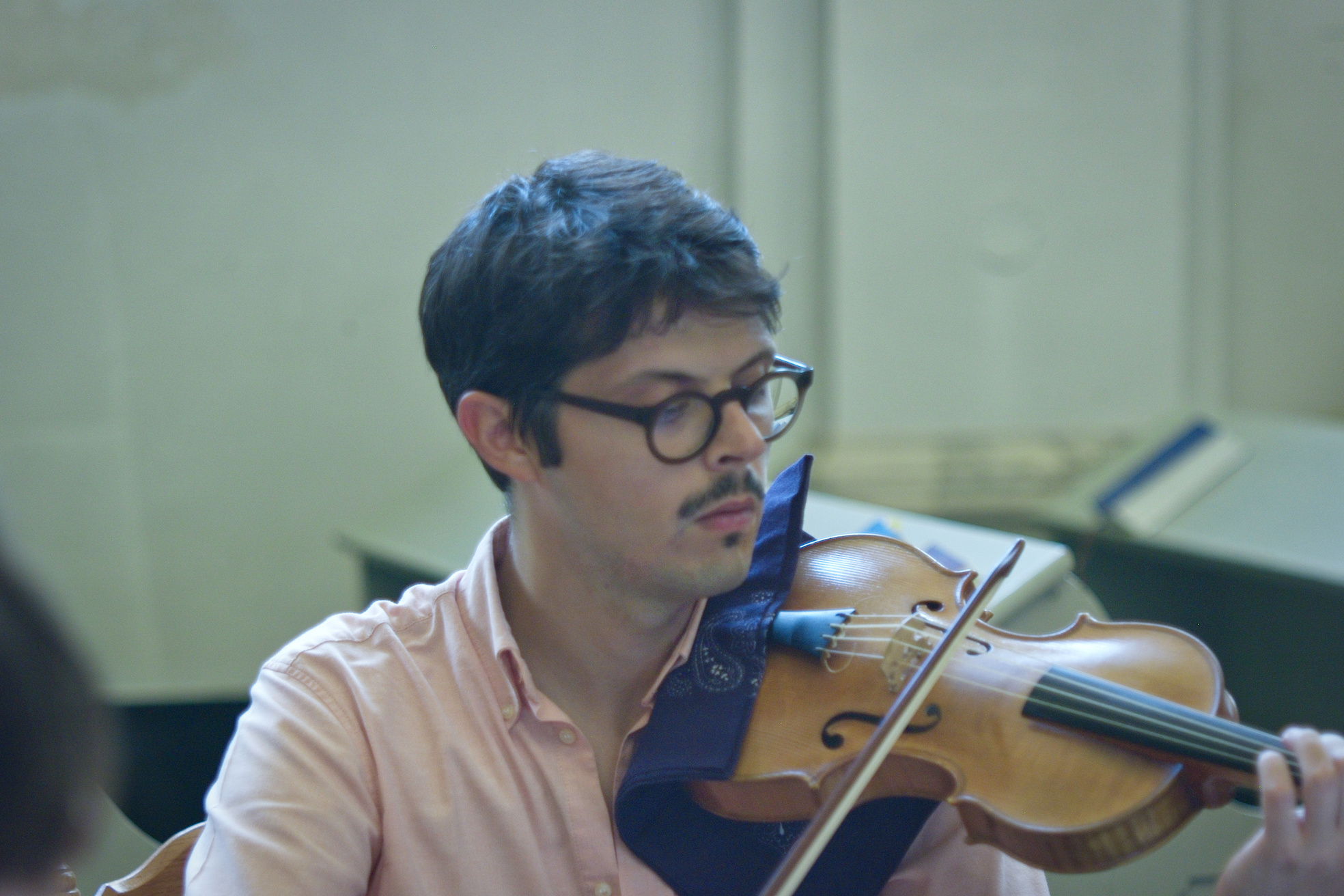
A new member of Theresia Orchestra is going to tell us about him and his experience in the orchestra. Let’s meet Pietro Battistoni, violinist at Theresia Orchestra.
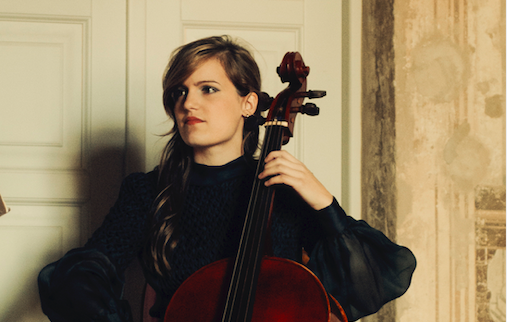
Let’s meet a new member of the orchestra: Giulia Gillio Gianetta, Italian-Spanish cellist at Theresia since 2016.
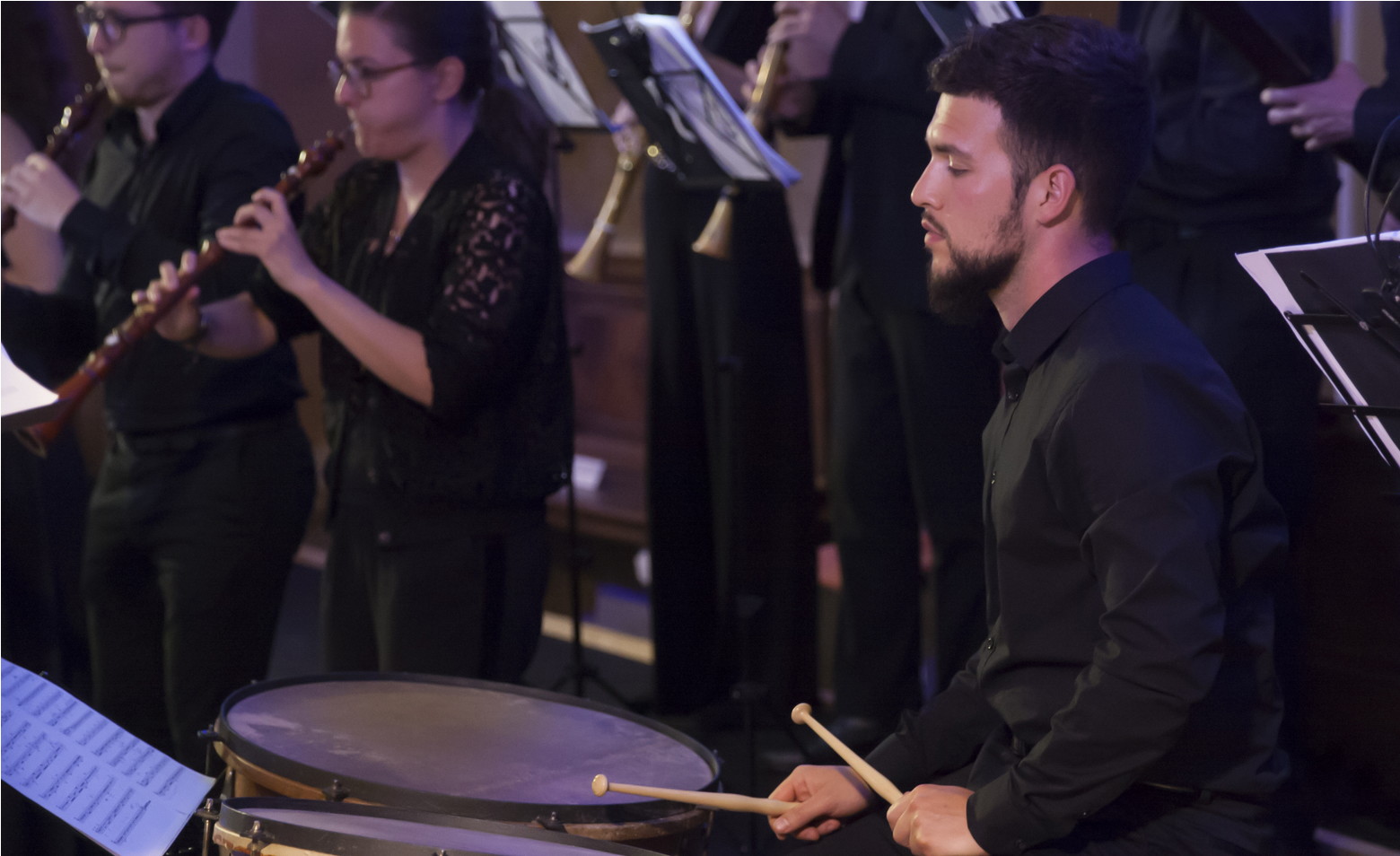
Let’s meet a new member of Theresia: Ruben Castillo del Pozo.
Ruben is a timpanist born in 1991. He started playing the violin at age seven. He studied six years at the Conservatory Angel Arias Maceín before changing from violin to percussion. After studying several years percussion he first came to the Netherlands.
(more…)
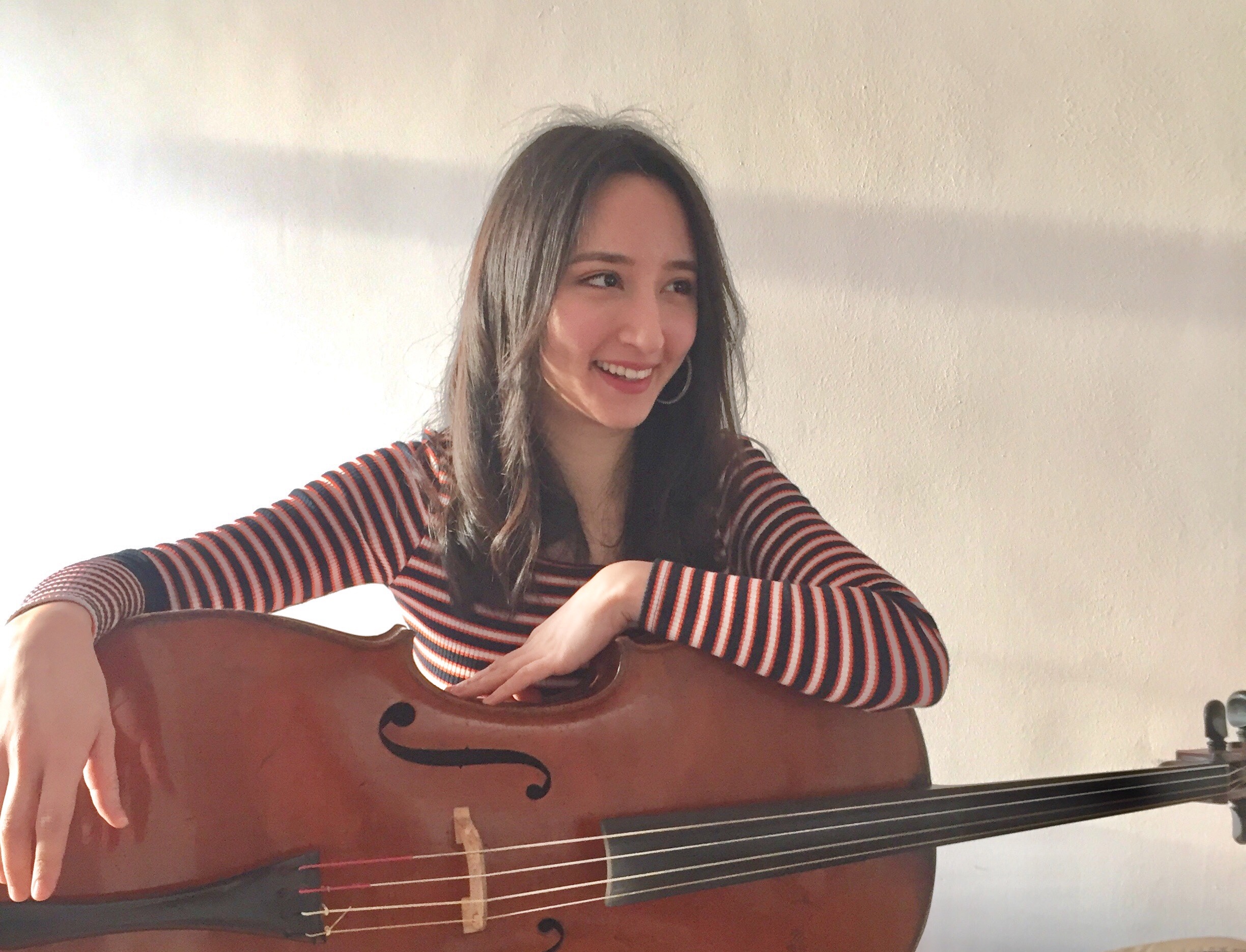
Let’s meet a new member of Theresia: Sophia Witmer.
Sophia is 23, comes from Japan and plays cello.
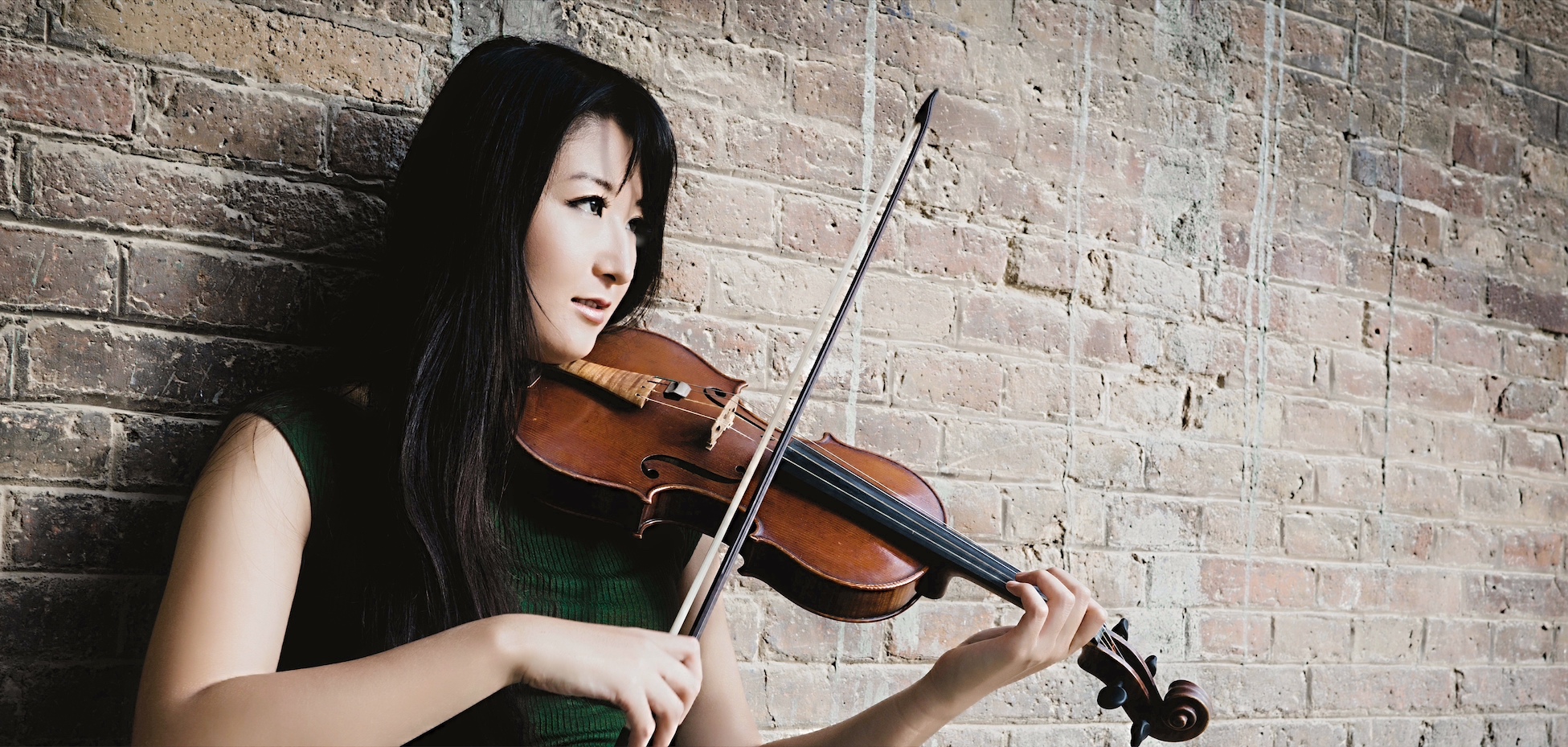
Let’s meet a new member of Theresia: Saaya Ikenoya.
Saaya Ikenoya is 28, born in Japan but raised in Spain, where she introduced herself into the violin study.
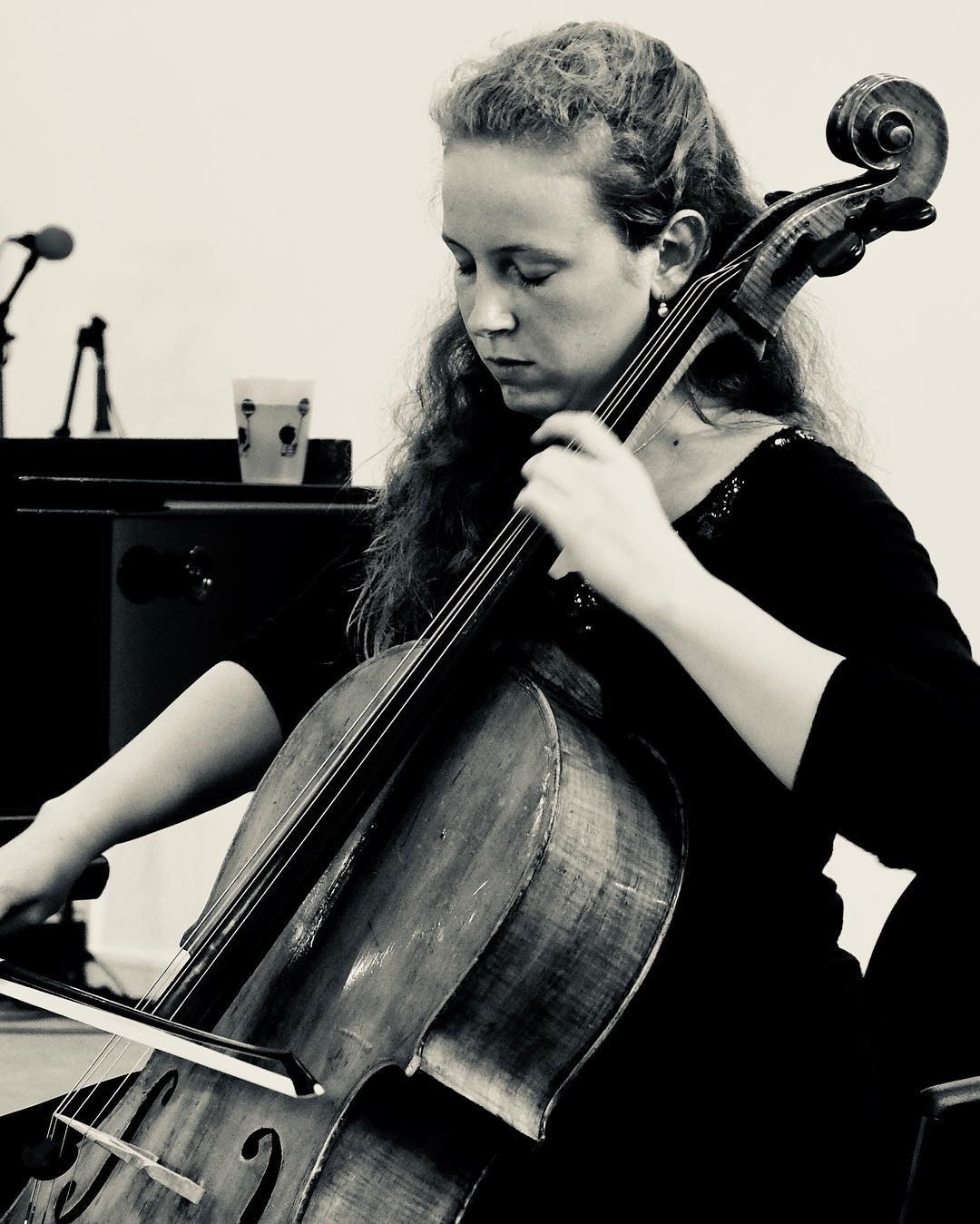
Let’s meet a new cellist in Theresia: Charlotte Gulikers. (more…)
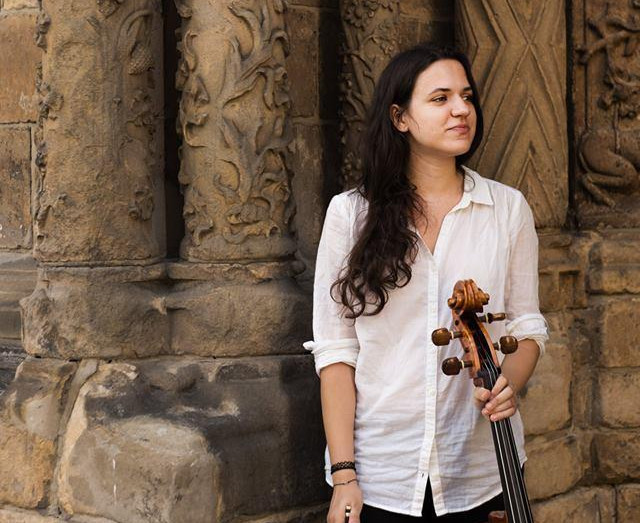
È la più giovane musicista di Theresia, e il suo entusiasmo è contagioso: Matylda Adamus, violoncellista polacca di Wrocław, ha solo 22 anni e ha debuttato con Theresia quest’anno, dopo aver partecipato alle audizioni per archi.
Matylda, come hai conosciuto Theresia?
“E’ una storia un po’ buffa: tre anni ha a Bolzano ho visto una persona (una cantante) che passeggiava con una borsa di tela con la scritta “Theresia Youth Baroque Orchestra”: io avevo appena scoperto, innamorandomene, la possibilità di suonare lo strumento antico nel repertorio barocco e mi sono detta “devo saperne di più di quest’orchestra”. Così ho iniziato a seguirla e appena è stato possibile ho partecipato alle audizioni, e così eccomi qua.”
E come sei arrivata a Bolzano dalla Polonia?
“Mi sono trasferita a Bolzano tre anni fa per studiare al Conservatorio Monteverdi con il professor Roberto Trainini, che avevo conosciuto ad una masterclass in Polonia. All’epoca dovevo decidere cosa fare dopo la scuola superiore: avedone frequentato una ad indirizzo scientifico avrei potuto continuare con medicina o una facoltà scientifica, ma l’esperienza della masterclass mi ha fatto capire che volevo andare avanti professionalmente con la musica, e mi sono trasferita. In autunno conseguirò la Laurea, e poi mi sposterò a Verona per studiare violoncello barocco con Catherine Jones.”
Come hai scoperto la possibilità di suonare lo strumento antico?
“Il mio insegnante attuale è stato molto importante in tal senso: anche se il corso che sto facendo (una laurea di primo livello) è sullo strumento moderno, lui ha una mentalità molto aperta, ed ha un approccio molto mirato alle esigenze e alle caratteristiche di ogni singolo allievo. A Bolzano ho potuto provare uno strumento antico, e mi sono subito innamorata del suono delle corde di budello: in particolare ho iniziato a considerare sotto una nuova luce le Suites di Bach e a desiderare di studiarle con lo strumento antico.”
Dopo la laurea, continuerai a suonare lo strumento moderno o ti concentrerai sulla prassi esecutiva storica?
“Mi concentrerò sulla prassi esecutiva: del resto il “barocco” è presente nella mia vita da sempre. Quando ero piccola studiavo pianoforte e andavo a sentire i concerti con mia madre. A sei anni sentii per la prima volta un clavicembalo e ne rimasi affascinata: in più, il Caffè della Filarmonica di Wrocław aveva un clavicembalo e potei suonarlo, fu una bellissima esperienza!”
Durante questa residenza con Theresia avete suonato molta musica di Joseph Martin Kraus: conoscevi questo autore e la sua musica?
“No, ed è stata un’altra bella scoperta. L’orchestrazione è spesso stupefacente e credo che ne approfondirò il repertorio.”
Che obiettivi hai per la tua carriera? Ti vedi più come solista, in un gruppo da camera o in un’orchestra?
“Non mi sento tanto tagliata per l’orchestra, sono più attratta da ensemble piccoli; ma ho anche un sogno da solista, vorrei registrare le Suites di Bach per violoncello. Sono musica incredibile e vorrei eseguirle con il violoncello piccolo, uno strumento a cinque corde che ho potuto provare durante una masterclass e che mi ha colpito per il suo timbro.”
Matylda Adamus e gli altri musicisti di Theresia si esibiranno giovedì a Bolzano in un concerto tutto dedicato alle Ouverture di Joseph Martin Kraus sotto la direzione di Claudio Astronio
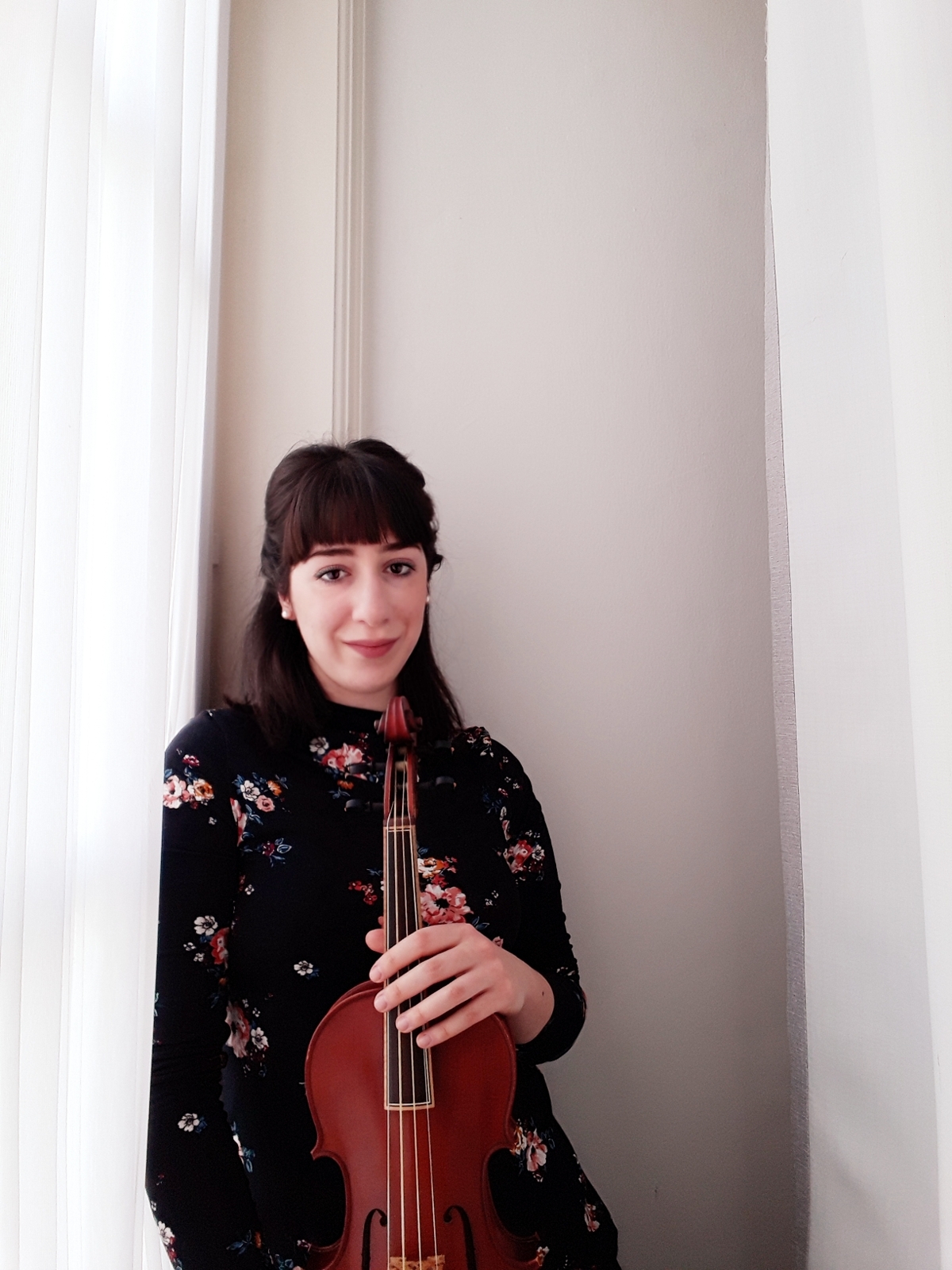
Let’s continue to getting to know musicians who have joined Theresia recently: today we have asked violinist Pantea Moshfegh, 27 years old, from Iran, to tell us something about her experience.
Pantea, where are you actually studying or working?
I came to Graz, Austria 8 years ago and started my bachelor at the university of music and performing arts in the field of modern violin. During my master I started baroque violin parallelly. After a while I was quite drawn to it and decided to take the entrance exam and start studying baroque violin. Now I’m studying baroque violin with Susanne Scholz in Graz and am also working as violin teacher and freelance musician.
Have you quit the modern one?
Not at all, I still play modern violin, mostly in orchestra and for teaching. In general, I love the music and playing violin, from any period! But what I like the most about baroque violin is the loyalty to music and historical performance practice which one can’t find easily in modern violin playing, studying or performing …
It’s very nice to get to know so many people from my age who chose the same path and have the same enthusiasm in historical performance practice studies.
When did your passion for the period instrument start?
The first time I heard/saw an early music Ensemble was on the TV channel Mezzo, I was about 16 years old. It was Jordi Savall Ensemble. I remember how fascinated I was. At that time I knew nothing about early music but after a while of reading and searching, it turned to one of my dearest passions… When I came to Graz I never thought I would choose it as my main activity and subject in music but my experience with modern violin and studying it changed my perspective completely. It’s been 2 years since I changed my direction and I couldn’t be happier.
How have you known about Theresia?
I heard about the orchestra from my colleagues in Graz who already played with Theresia Orchestra. I heard that there’s an audition soon and I thought it would be an interesting experience.
How has the experience gone so far?
Really nice, I’m very happy with the repertoire we have been playing. It’s a very pleasant feeling to make music with so many great musicians who have the same passion for music. I also appreciate working with Alfredo Bernandini very much. He has amazing ideas and express them so well that it comes naturally to us.
Beside, it’s very nice to get to know so many people from my age who chose the same path and have the same enthusiasm in historical performance practice studies. I’ve been mostly in Graz, where we have an amazing early music department, but I find it very important to meet people from other countries, exchange ideas and learn from each other.
Where do you see yourself in five or ten years? Do you think you’d rather be a soloist, have your own chamber ensemble or play in an orchestra?
“It’s a really difficult question. In general, I love performing – solo, in orchestra or small ensembles… And I’d be also very interested in researching and teaching. But I think I’d like mostly playing in a small ensemble, somewhere where one can share ideas and learn from other people. In Graz, I experienced this with the Violin Consort Ensemble which we founded with three of my colleagues. We play mostly music from the early baroque period. I think it’s very rewarding to play in a small ensemble because it helps you to discover and shape your own voice and taste in music.”
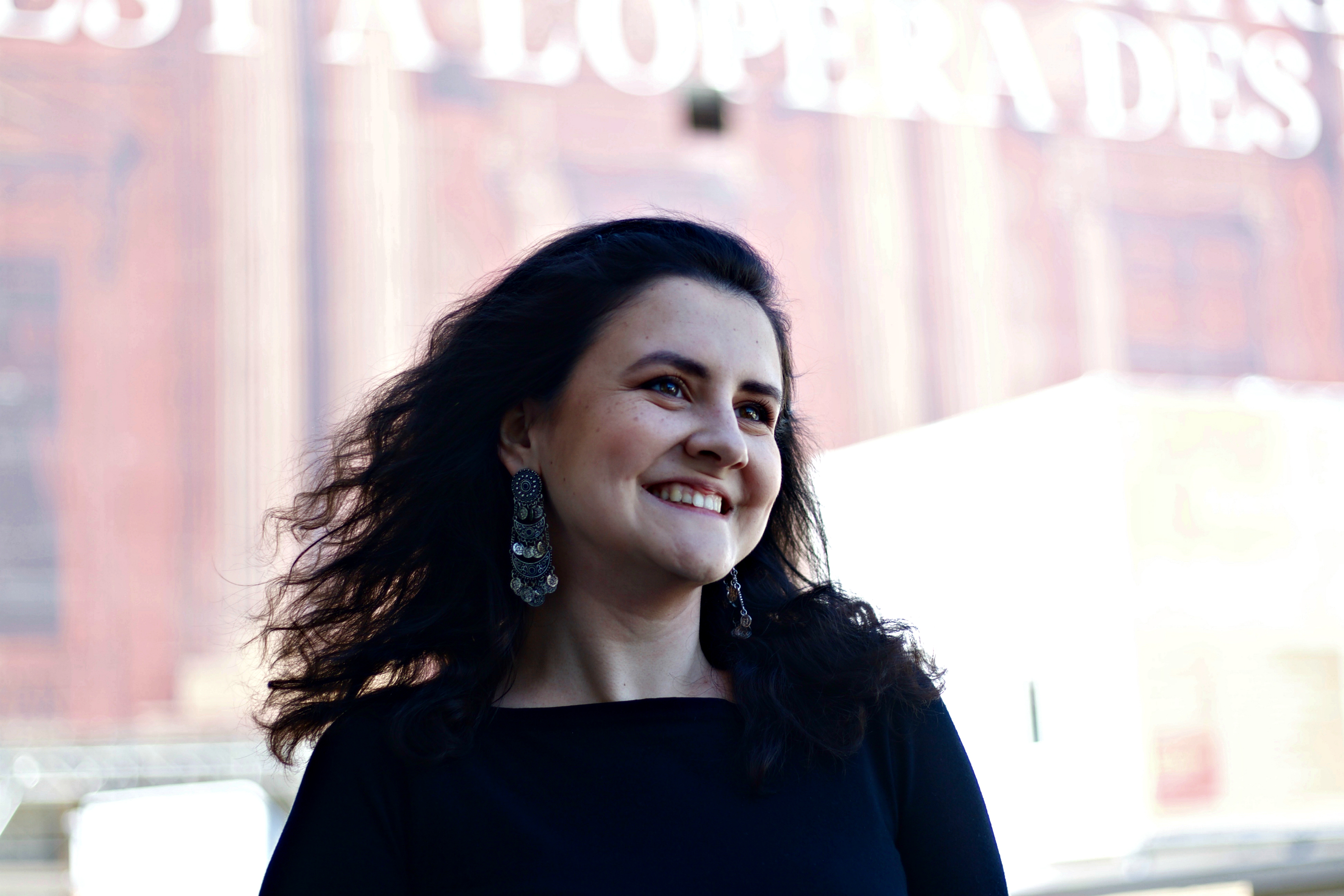
Violist and violinist Irina Fârtat is one of the youngest in Theresia: she is 23 years old, and she’s just started her experience in Theresia playing in Lodi and Mantova. Let’s find out more about her.
Irina, where are you from and where are you studying at the moment?
“I’m from Bucharest, and at the moment I am doing my first Master in Geneva with Florence Malgoire. I’m studying both historical violin and viola, but in Theresia I’m playing the viola.”
How did you know about Theresia?
“I was looking for some orchestral projects: I found the name of Theresia in some of my colleagues resumes; also, some of them told me about this project. Then I heard about the auditions, and I thought it would be a great idea to try. It has been an excellent choice, because I was interested both in the orchestral experience and in the kind of repertoire played by Theresia. Also, I am looking forward to learning from my colleagues, from the tutors, the conductors, from everyone.”
How has the experience gone so far?
“It’s great, I love it. I like the fact that Alfredo Bernardini is really creative in his way of working with us: he makes us feel as we are on the same level, and he has great ideas. I also found very interesting the lectures: it was great to get Bernardini’s point of view about his experience as a freelancer. We need advice, and it’s good to know other musicians’ stories, people who have already gone through it. I also liked very much listening to Professor David Wyn Jones: it’s great to get more information about the music we are going to perform from someone who has done so much research on exactly the type of repertoire that we are performing and the historical and social and political context behind it.
I like the fact that Alfredo Bernardini is really creative in his way of working with us: he makes us feel as we are on the same level, and he has great ideas
Are you specifically interested in becoming an orchestra player? Which are your plans for the future?
“Well, I think that solo life is not for me, I like working in a team, each having a bit of solo parts. The viola has much more repertoire in chamber and orchestral music, and it is a very important part of the harmony.”
Do you have a chamber group?
“Right now I enjoy playing chamber music and in orchestra projects at the university, and also whenever I am needed in freelance projects, but I don’t have a chamber music group or an ensemble of my own. I would love to, hopefully in the next years…”
It’s great to get more information about the music we are going to perform from someone who has done so much research on exactly the type of repertoire that we are performing and the historical and social and political context behind it.
Do you also play modern violin?
“Yes, I am actually. It is great that I get to play repertoire from the 16th and 17th century on the violin, and from the 18th and 19th century, the viola repertoire starts to develop more, so I get to play more on the viola as well. I am also open to play in projects with modern instruments, but right now I’m focused on the historical performance. It’s what I’ve been wanting for a very long time. I’ve always liked listening to Renaissance, Baroque and Classical music, up to Early Romantic: that has always been the music I would understand best, since I can remember. At a certain point, I heard orchestras and ensembles playing with historical instruments, and I really loved it! I realized that it was the way I wanted to play. But, you know, in Bucharest this kind of performance is not so popular: we have the Russian school, which is devoted to performing with great intensity and emotion every kind of repertoire. And, obviously, there’s nothing wrong about that, except I wanted to focus on the historical performance practice.”
When did you start to study baroque viola?
“I had been wanting to play historical viola since high school, but I actually didn’t have many opportunities. After finishing high school, I moved to Switzerland to do a Bachelor in modern viola. During my third year of Bachelor in Zurich, I found out that I could choose a secondary instrument, and I choose baroque viola with Ulrike Kaufmann. That was my first contact with historical performance, and it was so good that I decided to go on, and moved to Geneva. And here I am.”
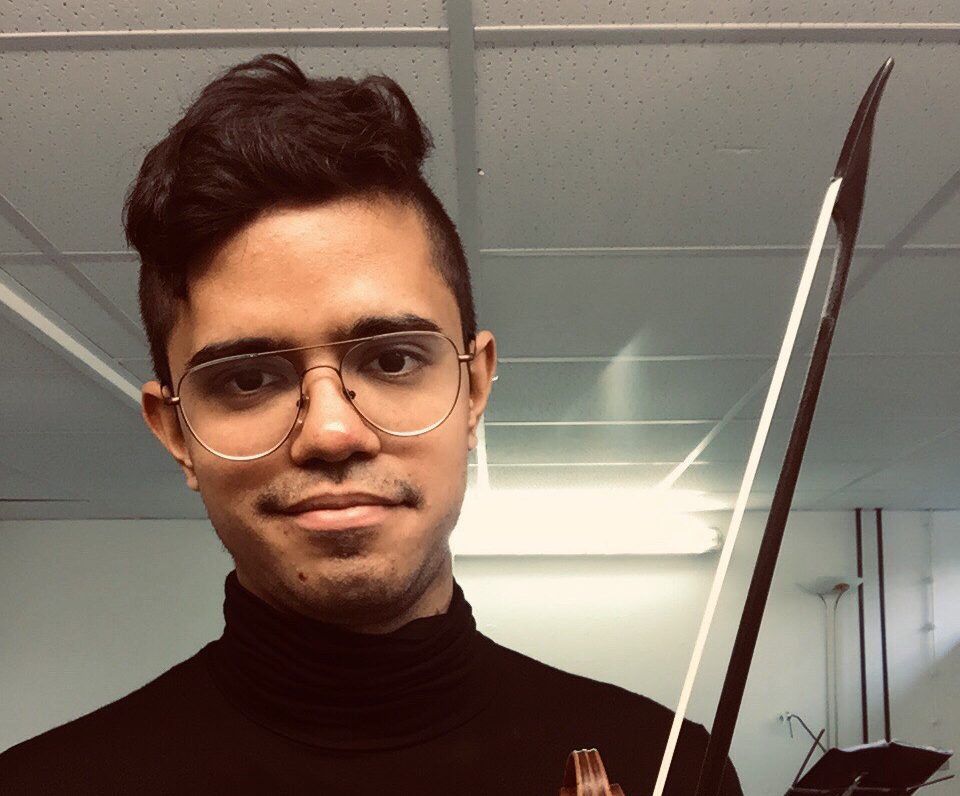
The new Theresia’s project (which is starting in these days and will end with two concerts on 3rd May in Lodi and 4th May in Mantua) will welcome six new musicians joining our orchestra. Let’s meet them starting with violinist Camilo Arias.
How old are you, where do you come from and where are you actually studying or working?
My name is Camilo Arias and I’m 27 years old. I come from Colombia, and I’m currently finishing my master in “historical informed practice” at the Hochschule für Musik und darstellende Künste Frankfurt am Main.
Speaking of performing music on historic instruments, which has been your most significant experience?
My most significant experience with historical instruments so far has been to play Bach’s Saint Matthews Passion for the First Time. It is such a rich work, that I had the feeling I could understand a little bit more about western culture only by playing it. It is like hearing Bach’s own exegesis of the Bible through music, his own thoughts and meditations about symbols that have been fundamental for a big part of the world… Although other Bach works are technically way more demanding for the violin, I still had the strange feeling that I had accomplished something in life only by sitting there and being part of it.
What are you expecting from this experience in Theresia?
From Theresia I am expecting to find joy with people and music, to find some inspiring musical friendships. I am looking for an ideal, friendly working atmosphere that aims for quality, in order to live up to the music. Since I recently went through some career-questioning, I’m hoping to find motivation and fun, that is why I came here.
Where do you see yourself in ten years?
In 10 years I see myself teaching back in my country and sharing what I have learned here. This is a goal that needs to be worked out and prepared properly, since I would like to reach a position in which I could impact society in the best possible way, so I don’t really know how long it is going to take me to be there. I have made some thoughts about this though, and Theresia plays also a role in this sense.
